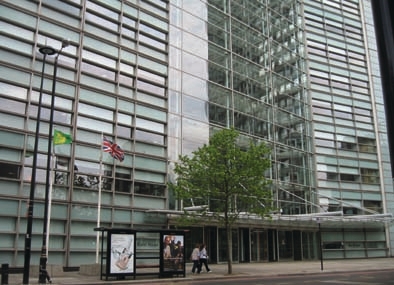You are viewing 1 of your 1 free articles
HRA rulebook reviewed as councils raid budgets
Rulebook to be revised after ring-fenced housing cash is diverted elsewhere
The government is to re-write its rulebook on council housing finance after an Inside Housing investigation uncovered evidence of widespread raids on maintenance budgets.
Our analysis of 115 council landlords’ financials unearthed an armoury of tactics employed by authorities to shore up other cash-strapped council services with rents and welfare benefits from housing revenue accounts, which are supposed to be ring-fenced.
A spokesperson for the Communities and Local Government department said it was ‘absolutely clear that the ring-fenced HRA is not to be used to supplement the general fund’.
Ministers had ‘powers to direct a council to return money to the HRA if evidence of its abuse merits it,’ she added.
In the past weeks, officials have revived a major review of the 19-year-old housing finance rulebook which defines legitimate charges on the HRA, Inside Housing understands.
An earlier bid to revise the 1995 guidance was shelved following the 2010 general election, after councillors lobbied Number 10 to ditch it, according to sources.
Our investigation found that councils have hiked ‘internal charges’ on HRAs above the rate of inflation and flipped property costs from ‘general funds’ to housing budgets. Some have even imposed inflated charges on discounted government loans that were intended to help boost council house building.
More than 60 councils raised internal charges on HRAs last year - by 12 per cent on average, our analysis reveals.
One in five of these boosted bills by 10 per cent or more. Eight pushed charges up more than 20 per cent.
As increases can be locked into HRAs’ 30-year business plans, the total disinvestment to council housing could accumulate quickly, finance experts have confirmed. At least £4.8 billion could be lost if internal charges rise at current rates for the 28 years left to run on the plans.
Such a disinvestment has raised serious concerns among the architects of the ‘self-financing’ HRA, which was established in 2012 to give councils greater control over housing budgets - but with just enough resource to keep homes in decent condition.
Ken Lee, chair of the housing panel at the Chartered Institute of Public Finance Professionals, said our evidence pointed to ‘some danger’ for council housing.
‘We wanted local authorities to have freedoms to look after their social housing,’ he said. ‘But are they starting to show they cannot be trusted?’
John Perry, policy analyst at the Chartered Institute of Housing, said: ‘It’s vital that any changes in payments out of the HRA don’t prejudice or reduce the quality of management and maintenance services.’
Click here to read more about the systematic raiding of HRA.





